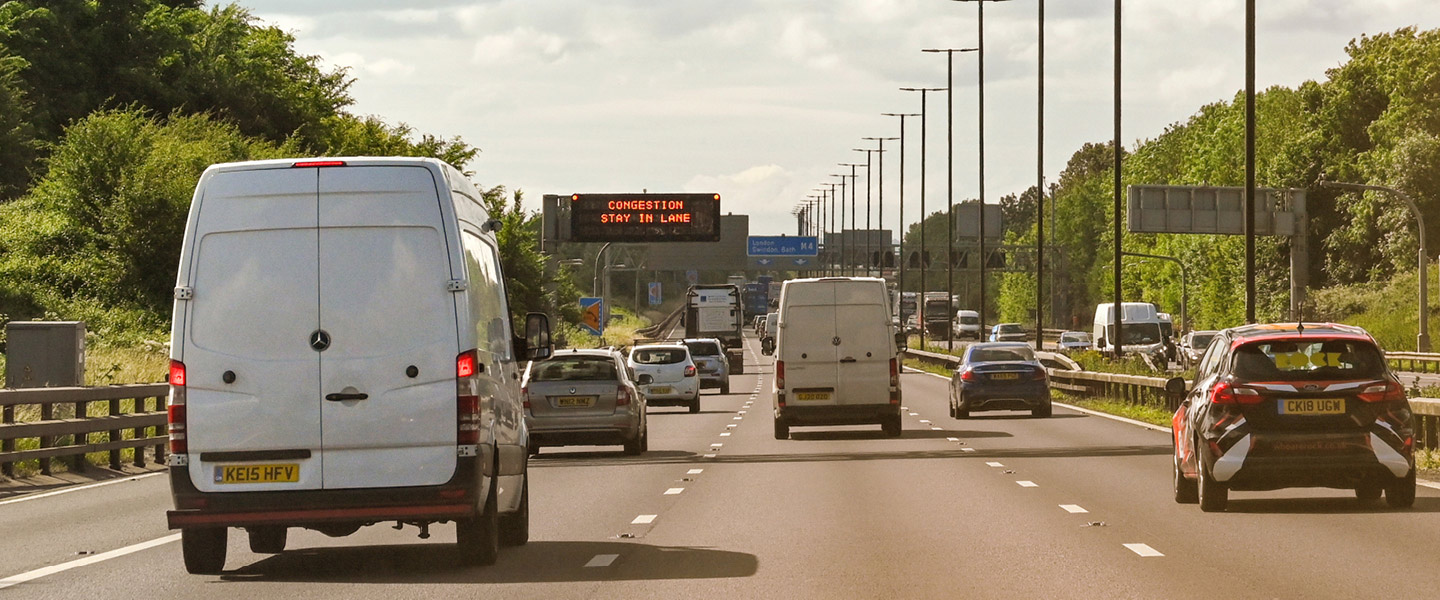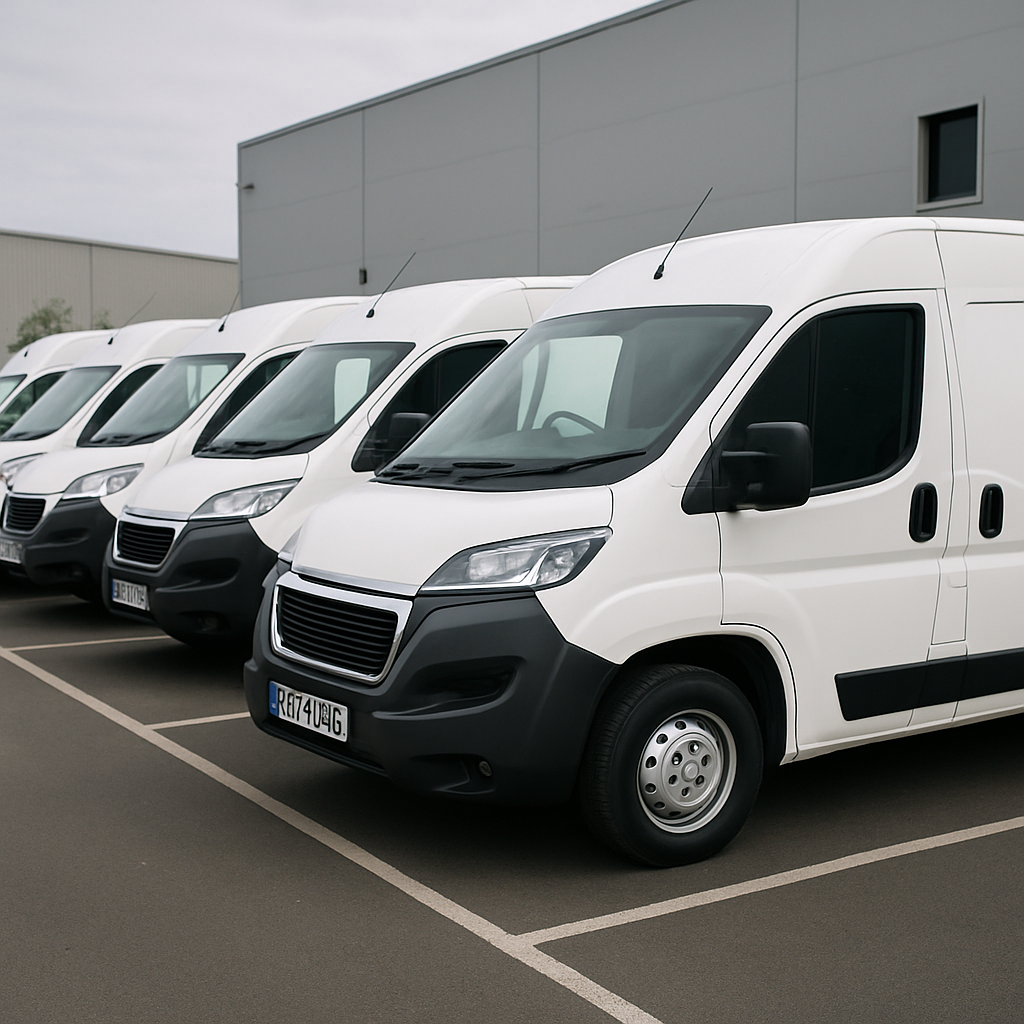Running a fleet in the UK is more than just keeping vehicles on the road and the wheels turning. Today, fleet operators face a growing mix of challenges, from driver shortages and rising costs to the pressure of reducing emissions. However, arguably of the biggest challenges is compliance with DVSA regulations and the increased demand for safety.
In the DVSA’s commercial vehicle fleet compliance checks, it was revealed that there were persistent gaps in roadworthiness and regulatory compliance. So, getting fleet management right is crucial, as it protects you from fines, enhances safety, helps control costs, and reduces downtime.
But what is fleet management? And why should it matter to you? Read on to discover common challenges (and how to overcome them), some best practices to help you stay ahead, and more.
What is fleet management?
In plain English, fleet management is about making sure your fleet’s cars, vans, trucks, and any other specialist vehicles are safe, legal, cost-efficient, and available when needed. This typically includes:
Vehicle acquisition and disposal: Deciding whether to buy, lease, or rent — and when to replace vehicles or assets.Compliant: Keeping up with O Licence, MOT, HMRC, and DVSA rules.
Safety and maintenance: Scheduling inspections, safety checks, and servicing.
Fuel and mileage: Reducing waste, tracking spend, and optimising usage.
Driver management: Risk profiling, training, wellbeing, and licence checks.
Accident and incident reporting: Ensuring every event is recorded, investigated, and acted on.
Data and reporting: Using your fleet’s information to make smarter business decisions.
In short, fleet management is about balancing your costs, efficiency, and compliance while supporting your drivers and vehicles to keep your business moving.
Common fleet management challenges
Managing fleet in today’s environment comes with its fair share of real pressures:
Compliance headaches
MOTs, O Licence obligations, licence checks, and inspection records — this is a lot to stay on top of and is all time-consuming. Miss just one record and your fleet is at risk of downtime or penalties.
You can overcome this by ditching manual work. Digitise compliance with automated reminders, centralised records, and clear, error-free audit trails.
Rising costs
Without much real-time oversight, costs related to fuel, insurance, parts, labour, and more can spiral out of control and be difficult to recover from.
Tackle this by using intuitive dashboards designed to help you keep track of cost ownership so you can highlight overspending early.
Driver management
Ensuring that every driver is trained, qualified, and compliant is complex. Now, times that by hundreds or thousands of drivers in large fleets, and you have an even bigger challenge on your hands.
Even across large or dispersed fleets, you can simplify digital driver records, like risk profiling or licence checks, to flag issues before they escalate.
Siloed systems
Even today, too many fleets still rely on disconnected tools or spreadsheets, leading to unnecessary mistakes and a lot of wasted time.
Resolve this by unifying driver, vehicle, and maintenance data into a single, integrated platform instead.
Sustainability demands
It’s no secret that fleets are under more pressure than ever to reduce CO₂ emissions and demonstrate greener practices.
You can address this by using a platform to monitor fuel and mileage data, introducing telematics, and planning transitions to EVs where needed.
Best practices for effective fleet management
With so many challenges to overcome, it can feel a bit daunting if you’re unclear on how to address them. To help, here are some proven best practices for UK fleet operators:
Centralise your data: Adopt one system for drivers, vehicles, compliance, and costs.Automate compliance tasks: Licence checks, service reminders, and defect reporting should never be manual.
Closely track costs: Start today and build a complete picture of fuel usage, driver behaviour, and vehicle lifecycle costs.
Invest in your drivers: Safe, trained drivers are at the heart of efficient fleets, so invest in their wellbeing.
Use reporting to look ahead proactively: Make the switch from reactive to proactive decision-making with trend analysis and forecasting.
Why adopting a modern fleet management solution is the right answer
The common theme when it comes to fleet management challenges and best practices is clear: a modern fleet management platform. This type of intuitive software is specifically designed to bring these best practices together in one place.
Instead of juggling endless spreadsheets and siloed systems, you get real-time compliance monitoring, so audits never catch you off guard. There’s also the massive benefit of smarter automation, meaning you reduce the admin on your team and also human error.
Choosing the right fleet management software also gives you better end-to-end visibility across all of your vehicles, assets, costs and drivers. Plus, whether you run 50 vehicles or 50,000, modern fleet management software helps you scale with ease.
For UK fleet operators, the real value here lies in moving from reactive firefighting that you’re likely familiar with to proactive, compliant, and efficient fleet management.
What does the future hold for fleet management?
Fleet management in the UK is constantly evolving. Dealing with day-to-day challenges is one thing, but there’s also a focus on preparing for new demands, such as regulation, technology, and sustainability.
There’s also the shift to electric, with government targets pushing fleets to adopt hybrid and EV solutions. Then there’s the focus on data and telematics, and how these are reshaping how fleets are run by offering real-time insights into performance, cost, and risk.
UK fleet operators need to be future-ready. That means no relying on manual systems or spreadsheets and instead embracing digital tools to gain the strategic advantage and keep your fleet efficient, safe, and competitive.
Would your fleet pass an audit tomorrow?
Are you confident your fleet would pass a DVSA audit tomorrow? Do you know the real cost of running every vehicle in your fleet? Can you confidently say that your drivers’ licences and compliance checks are all fully up to date? Could your team save hours every week if you finally got rid of spreadsheets?
If you hesitated at any of these questions, it might be time to rethink your approach.
Download our Fleet Benchmarking Report below to see how you compare to fleets across the industry. We’ve created this to help operators like you compare your performance against industry standards, spot any areas of improvement, and see where investments in fleet management systems, processes, and people will have the biggest impact.
Get your copy below
FAQs
What does fleet management include?
It includes vehicle lifecycle (acquisition, maintenance, and disposal), driver management, compliance, cost control, and data/insights.
What does compliance matter so much in the UK?
Regulations around roadworthiness, MOT, emissions, licensing, and duty of care carry genuine risk, such as fines, bans, and reputational damage. Plus, the DVSA regularly inspects compliance status.
How do fleets benefit from fleet management software?
Operations of all sizes can benefit. Intuitive platforms reduce admin burden, avoid penalties, improve vehicle uptime, standardise processes, give you early warnings of cost leaks, and much more.
Who needs fleet management?
Any organisation that operates with multiple vehicles. This could be anything from logistics and leasing to utilities and the public sector — they all benefit from structured fleet management.
Why is fleet management important?
Poor fleet management leads to compliance penalties, increased risk, higher costs, and costly downtime. Effective fleet management improves profitability, efficiency, and safety.




